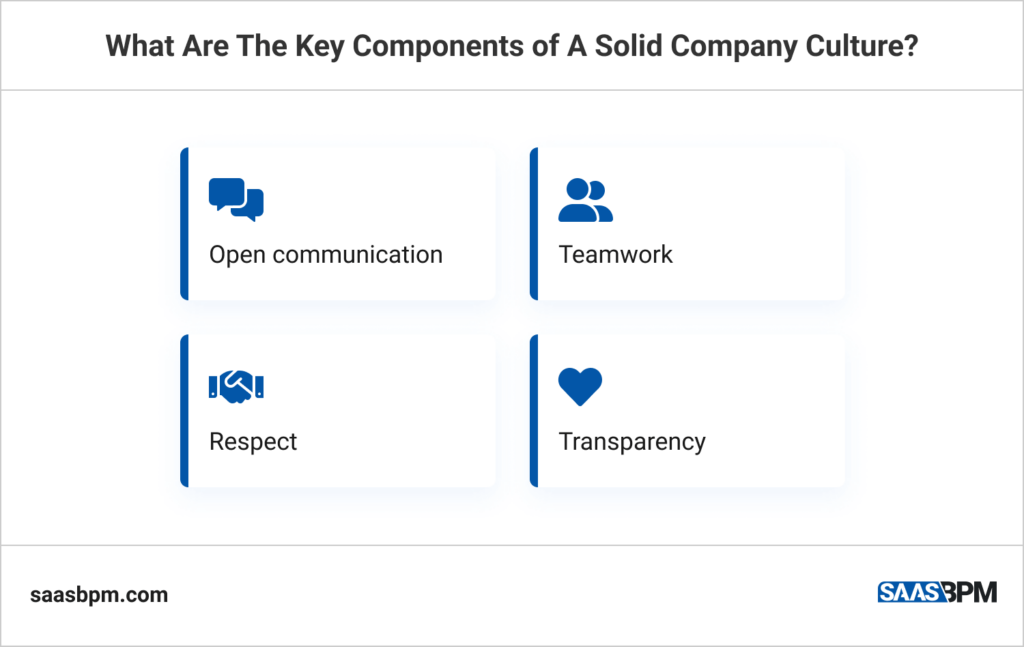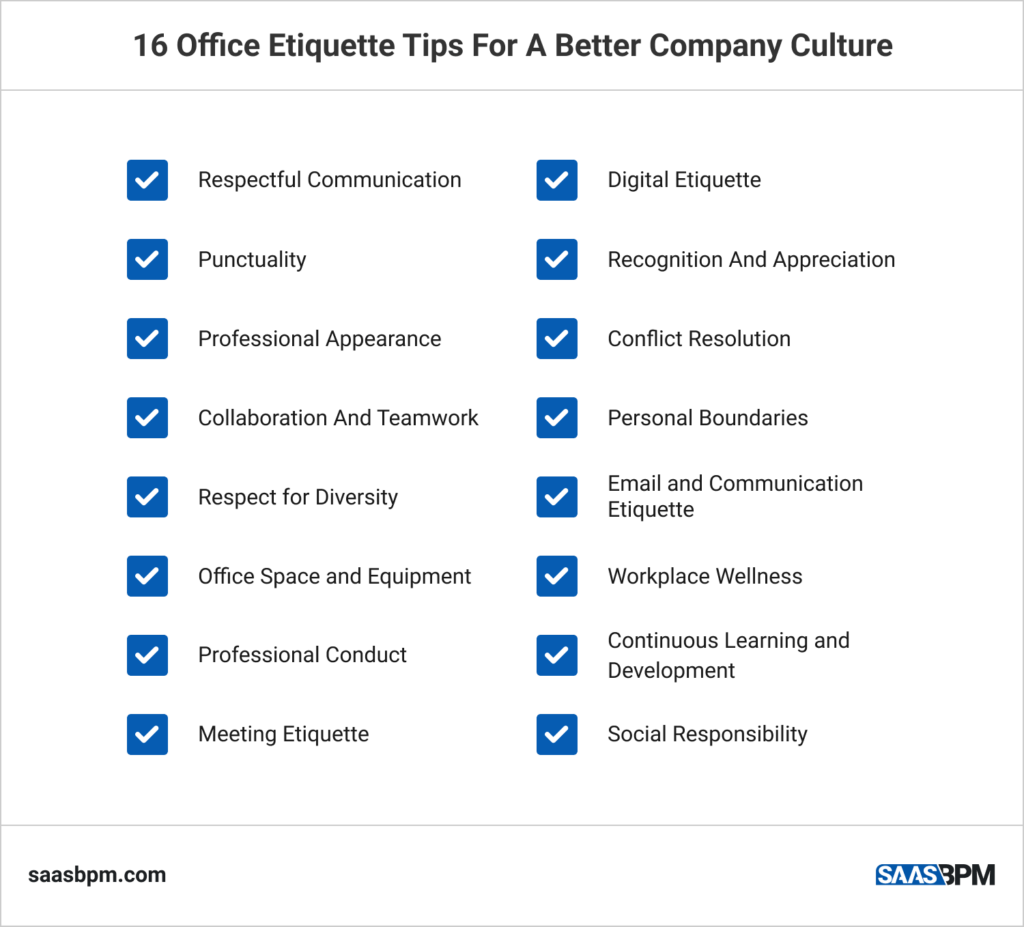There is no need to sugarcoat it – working with other people in an office can sometimes be challenging. After all, even though you are a team, each has their own personality traits that can sometimes conflict with the rest – and that’s completely normal! Therefore, there are unwritten rules about what behavior is “ok” – united under the term “office etiquette”.
In fact, over 40% of workers believe that poor communication decreases trust both in leadership and their team. This, in turn, can negatively affect productivity, as workflows become overly complicated and artificially prolong business processes. Consequently, this comes with a waste of resources, toxicity in the office, low levels of professionalism, and possibly, high staff turnover because employees don’t feel understood and leave.
Although office politics is not necessarily a bad thing – it just refers to the authority structure in an organization, it is widely known as a negative term. Gossiping and spreading rumors are the two main office politics crimes that make an office feel toxic, and are quite common even with remote workers. Other popular examples are people sabotaging each other, sucking up to the boss, and micromanagement.
As these practices can break a team and have bad consequences for the organization overall, in this article, we will suggest 16 effective ways to establish good office etiquette for a better company culture.
Office Etiquette vs Office Politics
Office etiquette stands in stark contrast to office politics. While office etiquette rules focus on promoting positive interactions and professional conduct, office politics involves power struggles, favoritism, and manipulative behaviors. Office politics can create a toxic work environment and erode company culture. By understanding the distinction between the two and actively managing office politics, organizations can protect their culture and foster a more positive and inclusive workplace.
Key Components of A Solid Company Culture

A solid company culture is built upon several key components that promote a positive work environment. Open communication, teamwork, respect, and transparency are essential elements that contribute to a healthy company culture. Office etiquette plays a vital role in nurturing these components and fostering a culture where employees feel valued, engaged, and motivated to contribute their best.
How To Manage Office Politics
To maintain a healthy company culture, it is crucial to address and manage office politics effectively. Open communication is key to resolving conflicts and fostering a more collaborative work environment. Encouraging employees to voice their concerns, providing conflict resolution mechanisms, and ensuring fairness in decision-making processes are essential steps to mitigate the negative effects of office politics and maintain a positive company culture.
16 Office Etiquette Tips To Improve Your Company Culture

1. Respectful Communication
Clear and respectful communication is the foundation of a healthy work environment. It involves active listening, using appropriate language, and being mindful of non-verbal cues. For example, giving your full attention to a colleague when they are speaking and avoiding interrupting them demonstrates respect and fosters effective communication.
2. Punctuality
Being punctual demonstrates respect for others’ time and shows commitment to the organization’s goals and good understanding of the office etiquette rules. Arriving on time for meetings, deadlines, and work-related commitments sets a positive example and helps maintain a productive work environment. For instance, if you consistently arrive late to meetings, it can disrupt the flow of discussions and create frustration among team members.
3. Professional Appearance
Maintaining a professional appearance contributes to a positive company culture. It involves dressing appropriately for the workplace and maintaining good personal grooming standards. For example, adhering to the dress code policy and presenting yourself in a neat and professional manner can enhance the overall image of the company and instill a sense of professionalism among employees.
4. Collaboration and Teamwork
Promoting a culture of collaboration and teamwork is vital for a thriving company culture. Encouraging employees to support one another, share knowledge, and work together towards common goals fosters a sense of unity and boosts productivity. For instance, organizing team-building activities or establishing cross-functional projects can encourage collaboration and strengthen relationships among colleagues.
5. Respect for Diversity
Respecting diversity and inclusion in the workplace is an essential skill for good office etiquette. Embracing individuals of diverse backgrounds, cultures, and perspectives enriches the work environment and encourages creativity and innovation. For example, actively seeking input from colleagues with different viewpoints during discussions or implementing diversity training programs can promote inclusivity and create a more welcoming atmosphere.
6. Office Space and Equipment
Respecting shared office spaces and equipment is essential for a harmonious workplace. It involves keeping workstations clean and organized, and using office equipment responsibly. For instance, cleaning up after using communal spaces like the kitchen or meeting rooms and promptly reporting any issues with equipment or facilities to the appropriate department can contribute to a well-maintained work environment and a positive company culture.
7. Professional Conduct
Maintaining professional conduct is crucial for a healthy company culture. It involves avoiding gossip, rumors, and engaging in office politics. Instead, employees should strive to treat everyone with fairness, courtesy, and professionalism, regardless of their position or background. For example, refraining from engaging in negative discussions about colleagues and focusing on constructive conversations and support can help maintain a positive work atmosphere.
8. Meeting Etiquette
Observing proper meeting etiquette is essential for effective communication and collaboration. It involves being punctual, actively participating, and respecting others’ opinions and time. For instance, being prepared by reviewing agendas, actively engaging in discussions, and allowing others to speak without interruption can lead to more productive meetings and a culture of open communication.
9. Digital Etiquette
In today’s digital age, practicing good digital etiquette is vital. It involves using professional language in emails, being mindful of the tone in online communication, and refraining from excessive personal use of digital devices during working hours. For example, proofreading emails before sending them, using appropriate salutations and signatures, and avoiding the use of caps lock or excessive exclamation marks can contribute to professional and respectful digital communication.
10. Recognition and Appreciation
Expressing appreciation and recognizing the achievements of colleagues boosts morale and strengthens the company culture. Keep in mind that replacing an employee can cost you 50-60% of their annual salary, amounting to 90-200% overall. So, encouraging a culture of gratitude and acknowledging the contributions of individuals fosters good office etiquette and a healthy workplace. For example, publicly recognizing and praising employees for their accomplishments, organizing employee appreciation events, or implementing a reward system can motivate employees and promote a culture of positivity and appreciation.
11. Conflict Resolution
Promoting effective conflict resolution skills among employees is crucial. Encouraging open dialogue, active listening, and finding mutually beneficial solutions helps address conflicts in a respectful and constructive manner. For example, providing conflict resolution training or establishing a mediation process can empower employees to handle conflicts professionally and maintain a harmonious workplace.
12. Personal Boundaries
Respecting personal boundaries is important in fostering a comfortable work environment. Being mindful of personal space, avoiding intrusive questions, and refraining from discussing sensitive topics contribute to a culture of respect and professionalism. For instance, understanding and respecting colleagues’ preferences regarding personal conversations or physical contact helps create a safe and inclusive atmosphere for everyone.
13. Email and Communication Etiquette
Practicing proper email and communication etiquette is essential for effective and professional correspondence. Using clear and concise language, appropriate subject lines, and addressing recipients respectfully helps ensure efficient communication. Additionally, avoiding excessive use of “reply all” and using email for appropriate purposes help maintain a clutter-free inbox and streamline communication channels.
14. Workplace Wellness
A healthy work-life balance and employee well-being contribute to a positive company culture. For example, supporting initiatives such as flexible work arrangements, wellness programs, and mental health resources shows care for employees’ overall well-being. For example, offering ergonomic workstations, organizing wellness challenges, or providing access to counseling services can foster a culture that values employees’ health and happiness.
15. Continuous Learning and Development

Emphasizing continuous learning and professional development encourages personal growth and motivates employees to handle all issues in the office in a calm, proactive way. Supporting opportunities for training, skill enhancement, and career advancement fosters a culture of continuous improvement. For instance, providing access to online learning platforms, organizing workshops, or sponsoring professional certifications demonstrates a commitment to employees’ growth and development.
16. Social Responsibility
Incorporating social responsibility initiatives into the company culture strengthens employee engagement and creates a positive impact beyond the workplace. Encouraging volunteerism, supporting community outreach programs, or implementing sustainable practices aligns the organization with values that go beyond profit. Engaging in such initiatives also enhances the company’s reputation and employee pride.
Key Takeaways
Developing and nurturing a positive workplace requires attention to office etiquette and the management of office politics. By promoting respectful communication, punctuality, collaboration, respect for diversity, and professional conduct, organizations can create an environment that supports employee well-being, productivity, and overall success. By adhering to these office etiquette tips, individuals can enjoy a more fulfilling professional experience.

